This is a continuation of the initiative to support women in developing their family economy that BAT Vietnam has maintained for many years in the southwestern border area, where women still face many barriers in terms of livelihood, employment and access to formal capital.
From financial support to livelihood empowerment
According to the plan, in 2025, BAT Vietnam will support a total of 1 billion VND in interest-free loans for 100 poor, near-poor or disadvantaged women's households in three communes of Dong Thanh, My Quy and Nhon Hoa Lap, Tay Ninh province (formerly Long An ). Each woman participating in the program will borrow 10 million VND for a period of 12 months to invest in small businesses, livestock or means of livelihood...
The highlight that makes the program sustainable is the interest-free revolving loan mechanism, with a maturity period of 12 months. This is not a one-time grant, but a microfinance model designed to create a revolving loan cycle within the community.

The funds are expected to be reused to continue supporting other households in the future after being repaid.
Previously, in 2024, BAT Vietnam's "Women's Empowerment" program supported women from 56 poor and near-poor households in border communes of Duc Hue and Tan Thanh districts, former Long An province (now Tay Ninh province). Many women, who used to worry about daily food, are now able to develop their own economy, raise their children to study better, repair their houses, expand their business to earn more income...
According to statistics, 100% of households that borrowed capital used it for the right purpose and initially made a profit, creating more income for the family. At the same time, each month, households set aside a portion of their income to repay the loan on time to the Women's Union, forming the habit of financial management and saving in the family. Periodic repayment not only helps the capital to circulate but also motivates women in border areas to do business sustainably and confidently start a business.

In addition to financial support, BAT Vietnam also coordinates with the Women's Union and agricultural extension officers to organize technical training courses for women to borrow capital. From 2022 to now, 30 training courses have been opened with 539 participants, imparting knowledge on cultivation, animal husbandry and small business skills. The training sessions also incorporate propaganda on preventing and combating smuggling and social evils to raise legal awareness among members.
Those small numbers contain big changes, from a given trust, women become stronger, more confident, and become a solid support for the family.
The “fishing rod handover” model - a sustainable opportunity for women in border areas
In border areas such as Tay Ninh, the proportion of poor and near-poor women still accounts for a large proportion of the total number of disadvantaged households, while access to preferential loans or vocational training is limited. Most women here work in the informal sector, with unstable incomes, vulnerable to economic fluctuations and natural disasters.
Therefore, bringing the "Women's Empowerment" program to border communes is not only financial support, but also a practical action to help women become more independent, confident and self-reliant in life.

To ensure the effectiveness and transparency of capital sources, BAT Vietnam has established a close coordination mechanism with the Women's Union (WU) at all levels in Tay Ninh province, the unit in charge of organizing implementation.
Capital management and supervision are focused throughout the implementation process. The Women's Union of communes will coordinate with partners and organize local working sessions to inspect and supervise the use of loan capital by each household.
After 6 months from the disbursement date, the Branches will report the results of phase 1 and after 12 months, the summary report of the entire loan implementation. This process has been effectively implemented by the parties for nearly 4 years (from 2022 to present).
Ms. Truong Thi Thu Trang, President of the Women's Union of My Quy Commune, emphasized: "We organize training courses on skills, guide women in capital management, reasonable spending and support in livestock and crop farming techniques. The most valuable thing is that after each loan cycle, households raise their sense of responsibility and unite to help each other develop."
In the future, this “fishing rod transfer” model, with the cooperation between enterprises and local authorities, promises to continue to promote household economic development, contributing to the process of new rural development. From the enterprise side, BAT Vietnam commits to supporting women, a vulnerable but potential force, as part of the sustainable development strategy in Vietnam. Along with that, the coordination of the government and local mass organizations will help closely monitor and promptly advise borrowers, ensuring that capital is used most effectively.
Source: https://hanoimoi.vn/chuong-trinh-trao-quyen-cho-phu-nu-tu-nhung-khoan-vay-nho-den-nhung-thay-doi-tich-cuc-trong-doi-song-cong-dong-722994.html






![[Photo] Highways passing through Dong Nai](https://vphoto.vietnam.vn/thumb/1200x675/vietnam/resource/IMAGE/2025/11/12/1762940149627_ndo_br_1-resize-5756-jpg.webp)

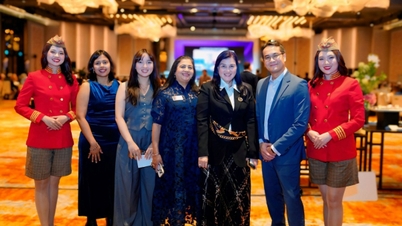

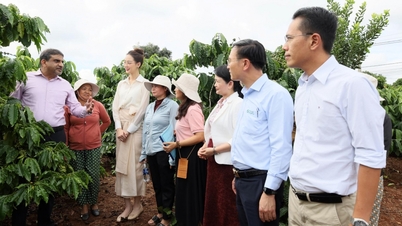

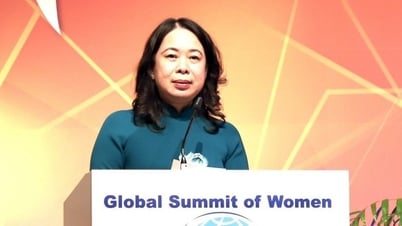

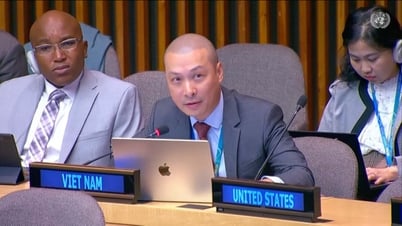
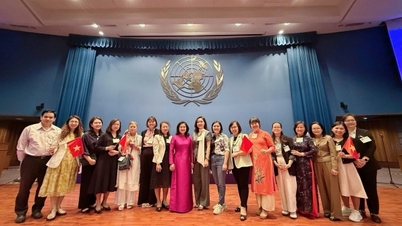





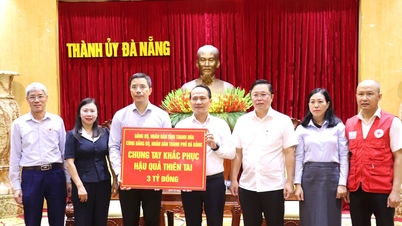

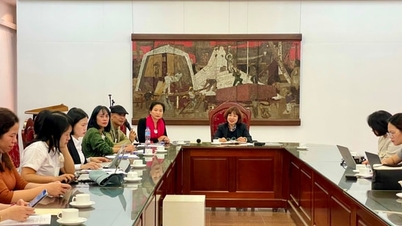
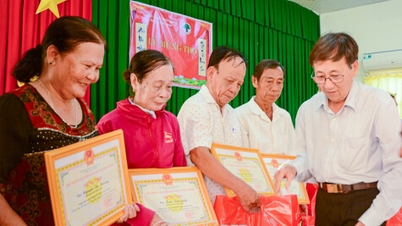

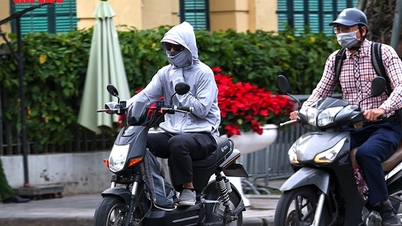

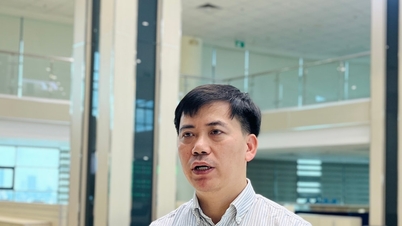




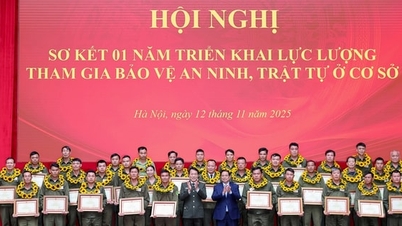
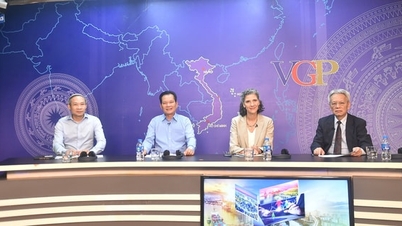
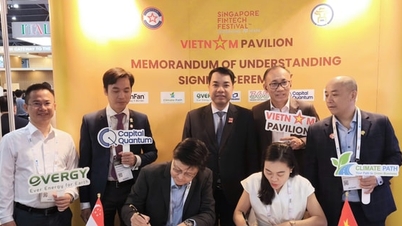

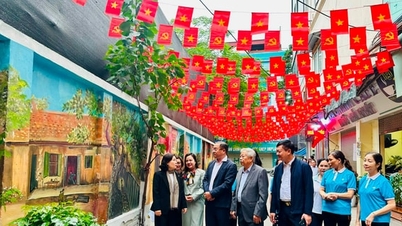
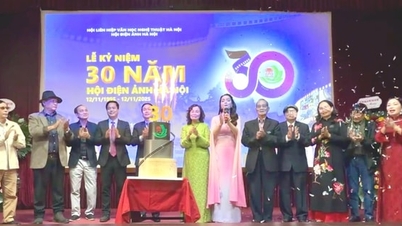


































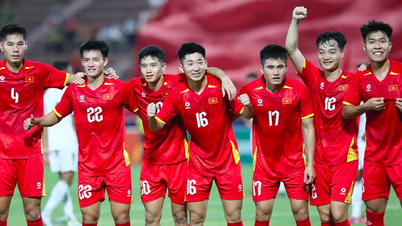

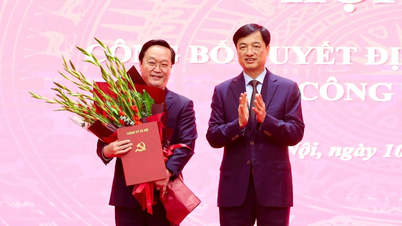


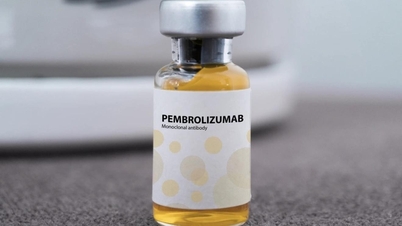

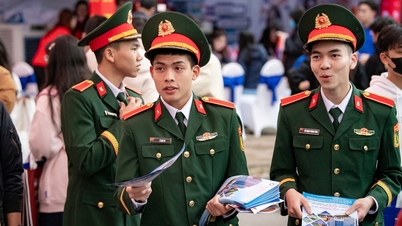

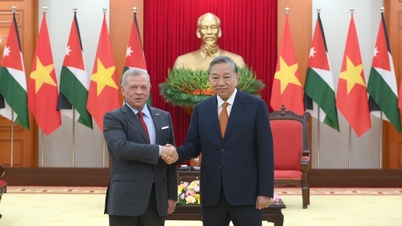
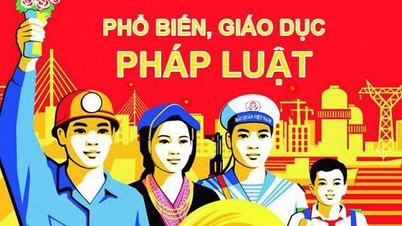

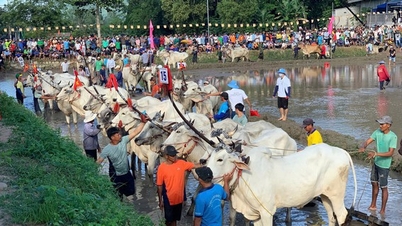

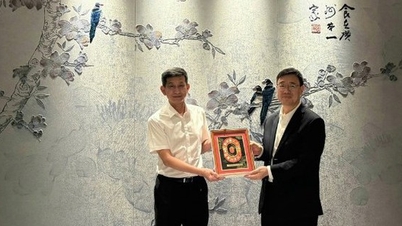
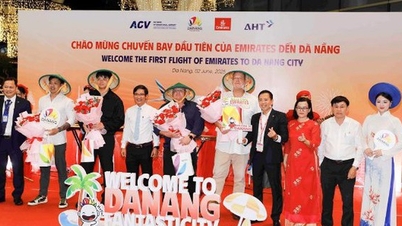













![Dong Nai OCOP transition: [Article 3] Linking tourism with OCOP product consumption](https://vphoto.vietnam.vn/thumb/402x226/vietnam/resource/IMAGE/2025/11/10/1762739199309_1324-2740-7_n-162543_981.jpeg)








Comment (0)